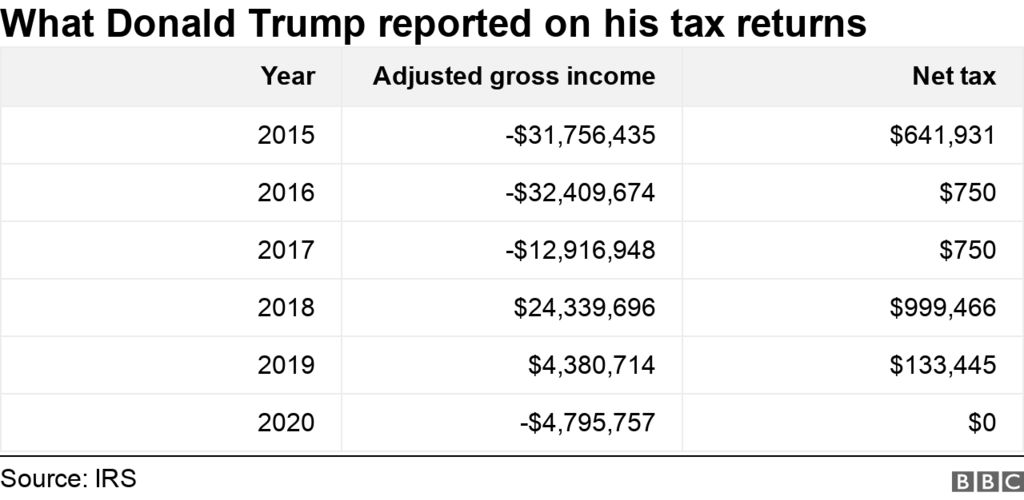As one of the most controversial figures in modern American politics, Donald Trump has a complicated financial history that raises questions about his debts and obligations. Understanding how much Trump owes is crucial not only for his personal finance but also for the implications it has on his political career and business ventures. In this article, we will delve deep into Trump's financial obligations, exploring the various debts he has incurred over the years and what they mean for his future. We will also analyze the financial transparency surrounding these debts and their potential impact on his public image.
Trump's financial dealings have been under scrutiny for decades, particularly during his presidential campaign and subsequent term. The magnitude of his debts has led to discussions about his financial acumen and ethical responsibilities as a public figure. This article aims to provide a clear picture of how much Trump owes, backed by reliable data and expert insights. We will dissect various aspects of his financial obligations, including loans, mortgages, and other liabilities.
By the end of this article, readers will gain a comprehensive understanding of Trump's financial situation, the potential risks he faces, and what this means for his political aspirations. With this knowledge, you will be better equipped to engage in discussions about Trump’s finances and their broader implications.
Table of Contents
- 1. Biography of Donald Trump
- 2. Trump's Financial Obligations
- 3. Analyzing Trump's Loans and Debts
- 4. Overview of Trump's Mortgages
- 5. Business Ventures and Their Impact on Debt
- 6. Financial Transparency and Public Perception
- 7. Future Implications of Trump's Debt
- 8. Conclusion
1. Biography of Donald Trump
Donald John Trump was born on June 14, 1946, in Queens, New York City. He is a businessman, television personality, and politician who served as the 45th President of the United States from January 20, 2017, to January 20, 2021. Trump began his career in his family's real estate business, eventually taking over and expanding its operations. He gained fame as the host of the reality television series "The Apprentice," which further boosted his public profile.
| Name | Donald John Trump |
|---|---|
| Date of Birth | June 14, 1946 |
| Occupation | Businessman, Politician, Television Personality |
| Presidency | January 20, 2017 - January 20, 2021 |
2. Trump's Financial Obligations
Donald Trump's financial obligations have been a focal point of both media and public attention. His debts are largely attributed to various loans taken out to fund his business operations and personal endeavors. According to recent estimates, Trump’s outstanding debts are believed to be in the hundreds of millions of dollars, though exact figures can fluctuate based on market conditions and new financial disclosures.
Some key components of Trump's financial obligations include:
- Real estate mortgages
- Business loans
- Personal loans
- Liabilities from various business ventures
3. Analyzing Trump's Loans and Debts
Trump’s loans and debts can be categorized into several types, including commercial loans, personal loans, and mortgages. Many of these loans were secured through various financial institutions, which raises questions about his creditworthiness and financial management skills.
Commercial Loans
Trump has taken out numerous commercial loans to finance his real estate projects. These loans are often secured against the properties themselves, meaning that failure to repay could result in the loss of significant assets. The interest rates and terms of these loans vary, but they often represent a substantial portion of his financial obligations.
Personal Loans
In addition to commercial loans, Trump has also incurred personal loans, some of which have been subject to intense scrutiny. Personal loans can be riskier for individuals, as they are typically unsecured and may carry higher interest rates.
4. Overview of Trump's Mortgages
Trump’s real estate portfolio includes several high-profile properties, each with its own mortgage obligations. Mortgages are typically long-term loans secured by the property itself and can be a significant financial burden if not managed properly.
Some notable properties with mortgage obligations include:
- Trump Tower, New York City
- Mar-a-Lago, Florida
- Trump International Hotel, Washington D.C.
5. Business Ventures and Their Impact on Debt
Trump has been involved in various business ventures, including real estate development, branding, and entertainment. Each venture carries its own financial risks and obligations, impacting his overall debt situation.
Real Estate Development
Trump’s primary source of income has historically been real estate development. While this sector can be lucrative, it is also highly volatile, leading to fluctuating debt levels based on market conditions.
Branding and Licensing
Trump’s brand has been leveraged for various licensing deals. While these can generate significant income, they also come with obligations and potential liabilities that must be managed carefully.
6. Financial Transparency and Public Perception
The transparency of Trump's financial dealings has been a matter of public interest and debate. Critics argue that a lack of transparency can undermine public trust, especially for a political figure.
Key points include:
- Tax returns and financial disclosures
- Impact on public perception
- Legal implications of financial mismanagement
7. Future Implications of Trump's Debt
Understanding the extent of Trump’s debts is essential for anticipating his future political and business endeavors. High debt levels could limit his ability to secure additional funding, impacting potential future projects and political campaigns.
8. Conclusion
In conclusion, Donald Trump's financial obligations are extensive and complex, involving various types of loans and mortgages across his diverse business ventures. The total amount that Trump owes remains a topic of speculation, but estimates suggest it is significant.
As we continue to monitor Trump's financial situation, it is vital to consider the implications these debts may have on his business operations and political ambitions. We encourage readers to share their thoughts in the comments below and explore more articles on financial transparency and political accountability.
Thank you for reading, and we invite you to return for more insightful articles in the future!




